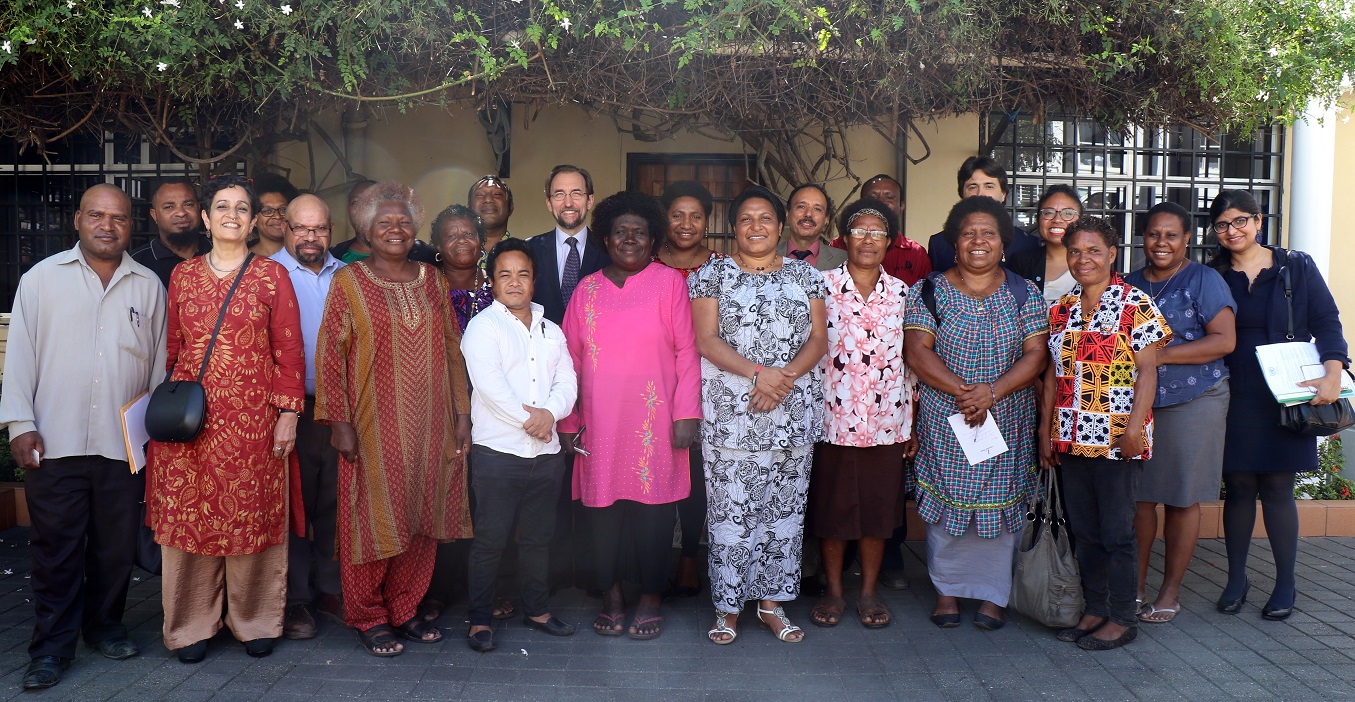Image: UN High Commissioner for Human Rights_Zeid Ra’ad Al Hussein visits PNG_2018
Last week UN High Commissioner for Human Rights, Zeid Ra’ad Al Hussein visited the country at the invitation of Prime Minister Peter O’Neill and the PNG Government. This is the first for any UN High Commissioner for Human Rights visit Papua New Guinea.
The High Commissioner met with the Prime Minister, Chief Justice Sir Salamo Injia, civil society representatives from Port Moresby, Bougainville and the Highlands, as well as other high-level officials.
He expressed great appreciation for the invitation but further said that the government needs to build a stronger connection with its people to better serve their needs.
“Papua New Guinea appears to be a country of contradictions. There are exemplary laws and policies in place to protect human rights, but they are reportedly often not enforced. It is a resource-rich country, but much of its population lives in abject poverty, with acute malnutrition rates in some areas comparable to Yemen and minimal access to quality healthcare and education. It has strong civil society activists but there is little room for them to influence Government policy.
“The Government urgently needs to build a stronger nexus with its people, so it can better serve their needs in this vast and diverse land,” the High Commissioner said.
High Commissioner Zeid also pointed out the human rights abuses of locals whereby businesses engage in extractive industries without the consent and knowledge of people living in the area.
“States have a responsibility to prevent, investigate, punish and redress human rights abuses within their territory, including abuses committed by private corporations. And business enterprises have an obligation to avoid infringing on the human rights of others and to address adverse human rights impacts of their activities.
“States and businesses can flourish without trampling brutally on people’s human rights – but in Papua New Guinea, human rights advocates report that local communities rarely get any benefits from the extractive operations carried out by large corporations on their land,” he said.
He also discussed the prospect of establishing a Human Rights Commission in the country, with Prime Minister Peter O’Neill.
“Our Government is committed to establishing a Human Rights Commission in our country.
“We are working though the details required to establish this important office and look to making an announcement soon before the matter is put to Parliament for discussion,” PM O’Neill said.
UN Human Rights chief said he was encouraged by the Prime Minister’s commitment to push through a bill establishing such an institution, but was concerned after hearing about attacks on human rights advocates and journalists working on sensitive issues, particularly land rights and corruption.
“I call on the Government to protect the important watchdog function of civil society, and indeed treating them as partners in tackling difficult human rights challenges, including the endemic gender-based violence and horrific attacks against those accused of sorcery in Papua New Guinea.”
In conclusion, UN High Commissioner for Human Rights said, as PNG prepares to host the APEC forum this year, the country will be in the spotlight, and his Office hopes to see decisive action by the government.
“Transparent societies with a strong emphasis on the rule of law, accountability and human rights attract opportunities for growth, and make for more stable societies. My Office – along with many other partners in the international community – stands ready to advise and support the Government of Papua New Guinea in this regard.”


